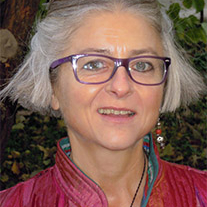Morocco joined the Coalition of the Willing on Pollinators
Published on: May 10, 2019, Submitted by Stefanie Christmann on: May 10, 2019
Pollinator protection is a prerequisite for biodiversity protection in terrestrial areas. Morocco, the benchmark country of the IKI project “Conservation of Pollinator Diversity for Enhanced Climate Change Resilience” took a major step ahead to develop a pathway for pollinator protection in Morocco and other countries.
Mr Mostafa Madbouhi, Moroccan focal point for the CBD, signs the document for membership of the Coalition of the Willing on Pollinators. It will be highlighted at a CBD event in November.
After the Intergovernmental Platform on Biodiversity and Ecosystem Services (IPBES) published its report on global pollinator decline in spring 2016, 13 countries, mostly from Europe founded The Coalition of the Willing on Pollinators during the Conference of the Parties of the Convention on Biological Diversity (CBD; 12 December 2016). The Coalition aims at promoting pollinator protection in countries and on multilateral level. Each member agrees on developing a national pollinator protection strategy and on sharing experiences with other countries. A few countries have already developed strategies, e.g. France, The United Kingdom (UK) and the Netherlands , Germany is in the process of putting a strategy into effect.
Up to date, the Coalition has 24 member countries and additionally the European Community and the Biodiversity and Ecosystem Services Network (BES-Net) are members. Still, most of the member countries are European (17), five countries from Latin America and the Caribbean joined and two countries from Africa, Ethiopia and Burundi. So, already a remarkable number of countries joined within a short time (around 12.5 % of all countries worldwide). However, Low and Middle Income Countries are still reluctant, maybe because the state of the art of pollinator protection is expensive. Low and Middle Income Countries cannot afford paying rewards to farmers seeding wildflower strips and events to motivate people to engage.
On 10 May 2019, Mr Mostafa Madbouhi, Moroccan focal point for the CBD, IPBES and Head of the Department for the Preservation of Biological Diversity in the Secretariat of State for Sustainable Development signed the document for membership. Morocco is the first country joining the Coalition within the North Africa, Near and Middle East region. Morocco is also among the richest countries concerning pollinator diversity in the Mediterranean Basin.
The Farming with Alternative Pollinators (FAP) shall become the basis of pollinator protection in Morocco. FAP assesses the economic value of habitat enhancement for pollinators and natural enemies, it demonstrates the higher net income per surface within on-farm trials.
might enable these countries to protect pollinators as well Within the IKI project, The International Center for Agricultural Research in the Dry Areas (ICARDA) and the Moroccan partners discussed a cross-sector policy mix, which would allow pollinator protection in Middle and even in Low Income Countries. Pollinator loss can cause serious degradation affecting human wellbeing and all sectors, so all sectors have an interest in sustaining them. INRA, Mr Madbouhi and ICARDA and will now address potential policy instruments with other national partners like Ministry for Agriculture, Maritime Fisheries, Rural Development and Water and Forests (MoA) and other ministries.MoA promotes outscaling FAP through ONCA. MoA and Ministry of Foreign Affairs and International Cooperation both supported joining the Coalition.
The final policy mix shall be shared with the other participating six countries of the IKI project and with the Coalition of the Willing on Pollinators to motivate more Middle and Low Income Countries to join the Coalition. A high number of member countries in the Coalition can trigger a spirit for more ambitious pollinator protection on multilateral level, which is urgently needed. The recent IPBES report on decline of biodiversity shows the dramatic decline of species in general. Pollinators are key species for the protection of biodiversity, as they enrich genetic diversity of plants, are basic for the diversity of species and habitats. Pollinators are a prerequisite for all ecosystem services to some extent.
Acknowledgement
Federal Ministry for the Environment, Nature Conservation and Nuclear Safety (Germany).




